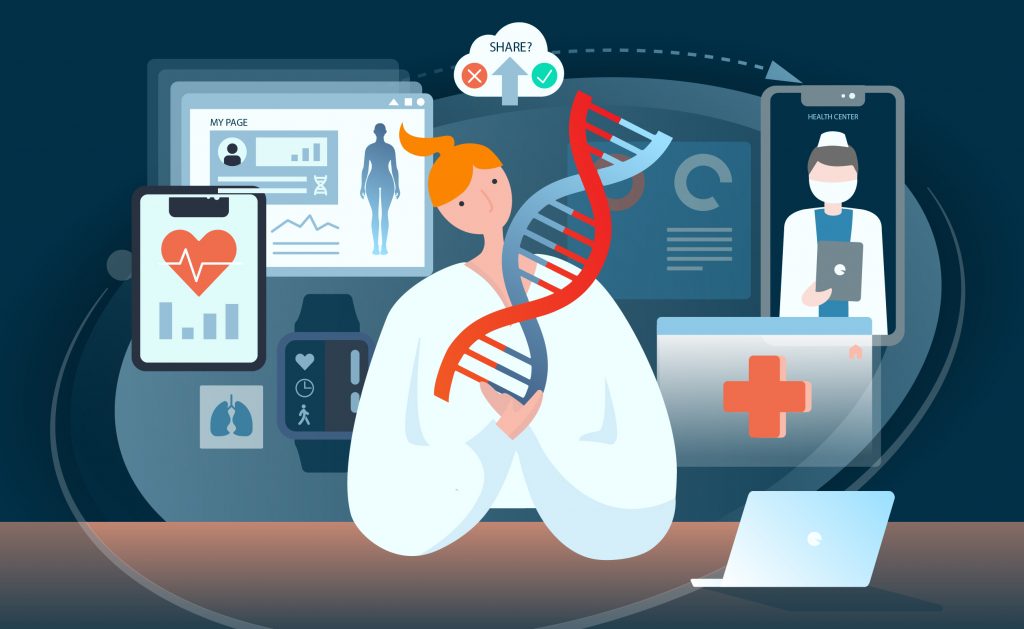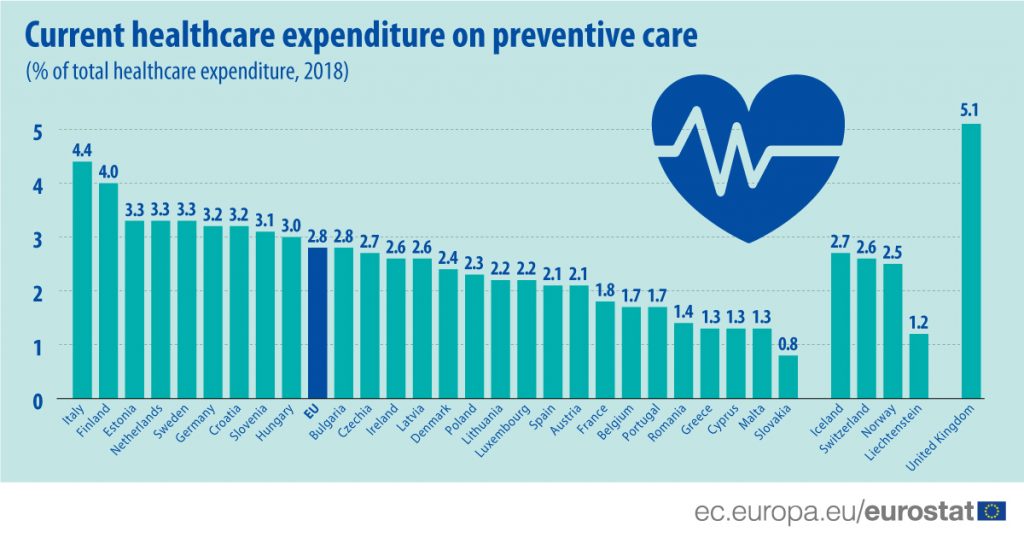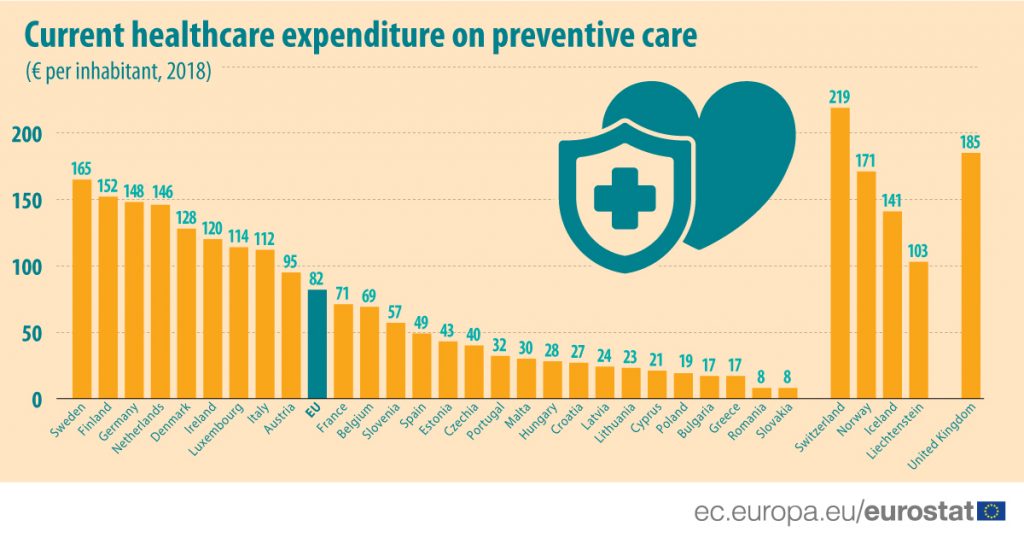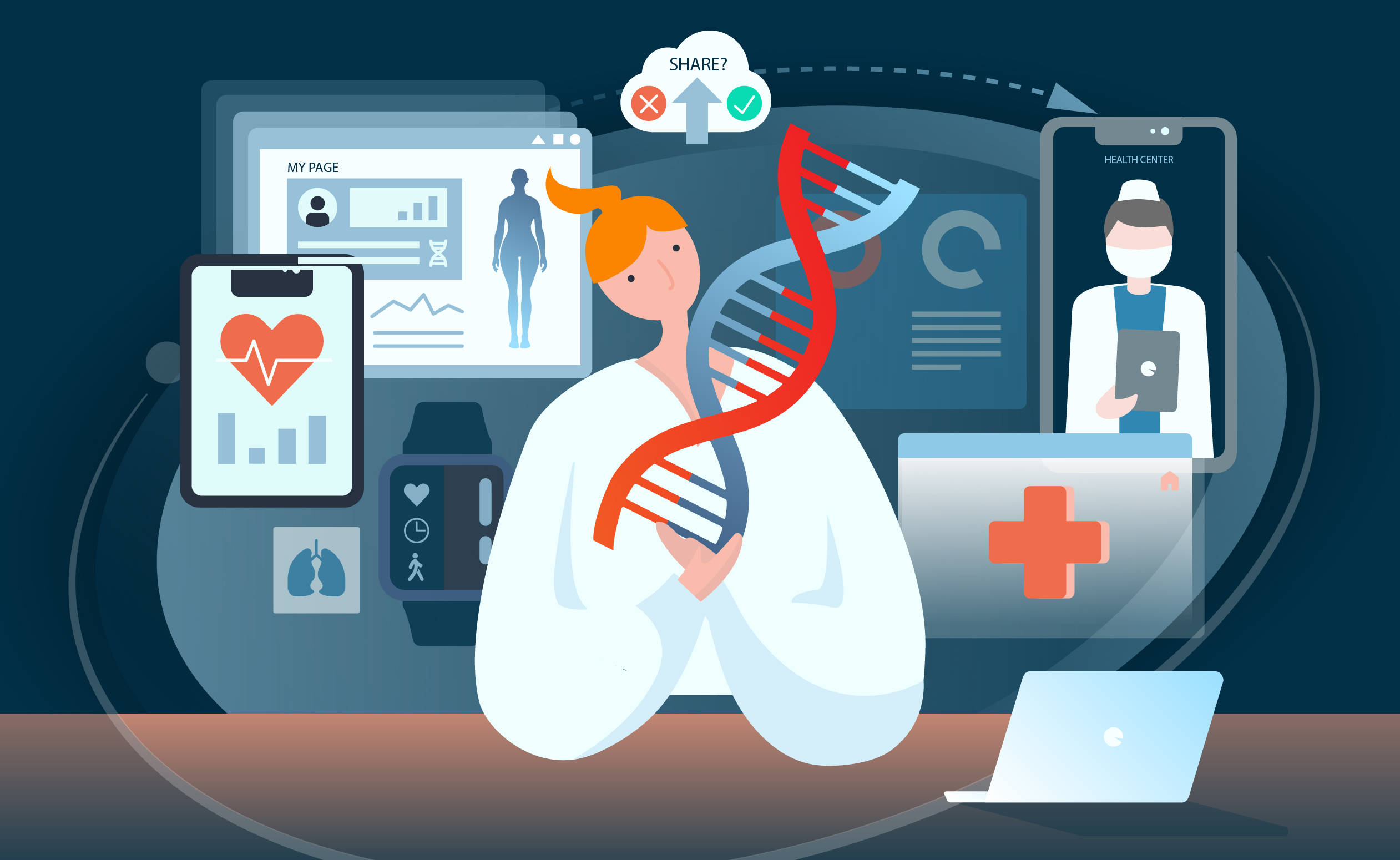by Mona Wang

Two years of co-living with the SARS-CoV-2 virus has vigorously changed our life. The healthcare industry is taking the spotlight in everyone’s life as never before and new trends are evolving along with the development in digital healthcare. Here we will focus on three major trends that have been observed and are expected to further grow in the (post-)COVID era.
The first big trend starts with Healthcare Consumerism, in which the patient is no longer a patient alone but much more a consumer. This alteration is asking the entire industry to change its traditional way of thinking and behaviour. The problem in Germany for example is that healthcare is “free”. In Germany around 90% of the population[1] is covered by public health insurance and they could potentially afford unlimited visits to doctors. Therefore, for most patients, healthcare is not considered as a consumer good but more as a service. With increasing rates of chronic diseases, an ageing society and a lack of doctors, the traditional way of healthcare service is not long-lasting anymore. We do need to take into consideration that one-third of the doctors in Germany are over 60 years old and there will be an even bigger lack of doctors in the future. Currently, less than 3% (EU healthcare expenditure on preventive care 2018 was 2.8%, Germany’s was 3.2%[2]) of total healthcare’s spending’s are invested in preventative care[3], indicating that early diagnosis, which is actually the key for disease prevention has been almost completely neglected and patients are usually coming to the doctors if it is too late – causing a burden for both the patient and the healthcare service.


Picture: https://ec.europa.eu/eurostat/web/products-eurostat-news/-/ddn-20210118-1
„The Innovator’s Prescription: A Disruptive Solution for Health Care“ and subsequent publications foresees that after years of centralized healthcare, the onset of decentralization is very likely to take over. Christensen claimed that the process of decentralization will follow other industries (e.g., travel, retail and financial services) in which technology-enabled disruptive innovators enabled ways to improve access to services (or technology) and reduce costs. In the U.S. TransUnion Healthcare’s analysis of over 500 hospitals across the States reported a 32%-60% decline in visit volumes for March 2020, in comparison to pre-COVID-19 volumes. On the other hand, a profound growth in telemedicine is taking place. Studies claim that there is an increase of 4.347% in Telehealth from March 2019 to March 2020, growing from 0.17% of medical claim lines to 7.52% over that time.[4] Decentralization in healthcare is taking place in multiple different aspects, including home-based urgent care; hospital-at-home; virtual primary care and virtual speciality care. Along with the simplicity of accessing knowledge on the internet or the provision of medical information on diverse platforms, patients are having much easier access to knowledge than 10 years ago. However, another arising problem is that in many cases patients have difficulties in translating the online-gained knowledge into understandable language or applying it to themselves. Thus, the traditional doctors’ job is also seeing a shift in patient interaction in this case: their job is not only to examine the patient but also involves translating the data and online know-how to the patients. With the decentralization, not only are physicians, clinicians the target consumers, but also every single patient or even every citizen could become a potential customer. The entire healthcare market is taking its shift to personalized medicine and modality providers are facing the challenge of again in stakeholders. In this stage, it is absolutely necessary for them to establish new methods of interaction with different stakeholders.
Lastly, the development of the healthcare industry is the individualism of care. The future of healthcare must evolve to both inclusion and individualism. The reality of individualism is made true by our genome, which encrypts all genetic information and contains all information needed to build and maintain that organism (according to the National Institutes of Health, NIH). With emerging technologies and advances in research, healthcare providers could truly offer personalized medicine and tailor-made treatment options based on our genomic information. For the first time in centuries, we are able to make early clinical diagnoses and predictions via machine learning or AI-based pattern recognition for e.g. cancer diagnosis. The parallel challenge for organizations, however, is to make similar advancements when it comes to inclusion. All the predictions and calculations require patients’ genetic data, however before gaining the data, you need to ask patients to trust you with their DNA and their stories in order to share.[5]
Summing up, there is this entire shift of focus and trend due to the COVID-19 crisis. It fundamentally changes the behaviour in healthcare consumerism, accelerates the digital health-led decentralization of healthcare delivery and highly promotes individualism and inclusion in healthcare.
[1] https://www.gkv-spitzenverband.de/krankenversicherung/kv_grundprinzipien/alle_gesetzlichen_krankenkassen/alle_gesetzlichen_krankenkassen.jsp
[2] https://ec.europa.eu/eurostat/web/products-eurostat-news/-/ddn-20210118-1
[3] https://www.healthsystemtracker.org/chart-collection/what-do-we-know-about-spending-related-to-public-health-in-the-u-s-and-comparable-countries/#:~:text=Preventive%20care%20spending%20in%20the,countries%20on%20average%20(2.4%25).
[4] https://www.mobihealthnews.com/news/back-future-digital-health-led-decentralization-health-care-delivery
[5] https://www.forbes.com/sites/glennllopis/2018/06/25/individuality-in-healthcare-is-here-pair-it-with-inclusion-to-achieve-better-outcomes/?sh=13daabe5912a


